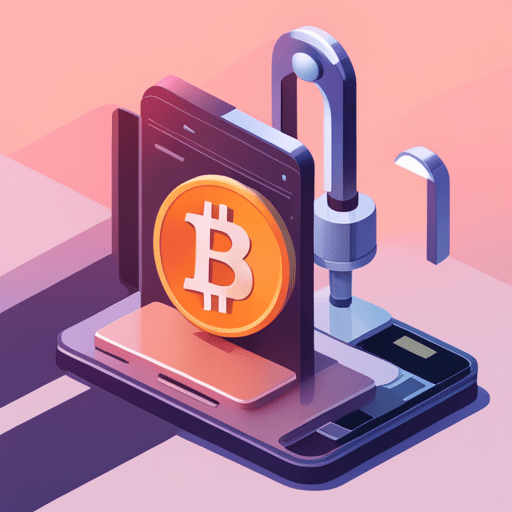Home » Knowledge Base » Security »
Supply Chain Attack
Supply Chain Attacks: Protecting Your Bitcoin and Hardware Wallets

Supply chain attacks pose a severe threat to Bitcoin security, particularly when hardware wallets are involved. Such attacks transpire when a hardware manufacturer or distributor introduces malware or a backdoor into their devices. Jeopardizing the privacy of Bitcoin users and potentially leading to theft.
This article delves into the complexities of supply chain attacks, shedding light on the inherent risks they pose to the Bitcoin community. We address how to safeguard yourself from this escalating threat and why multisignature crucial to Bitcoin security.
What Is A Supply Chain Attack


Supply chain attacks represent a significant threat in the realm of hardware security. These involve the intentional manipulation of hardware elements during either production or distribution stages. The aim? To implant malware or a concealed backdoor that can undermine the device’s security, providing illicit access to sensitive data like private keys (?).
There’s a range of motivations driving these supply chain attacks. Some are executed for personal profit, with the attackers aiming to pilfer Bitcoin or invade the user’s privacy. Alternatively, these attacks can be the handiwork of larger entities like governments. Seeking to assert dominance over the Bitcoin network for strategic gains or just as a full blown attack.
By comprehending the potential threats and motivations behind supply chain attacks. Users can adopt measures to protect their security. This awareness is a crucial step towards a safer Bitcoin network. Ensuring robust hardware security can deter these threats, helping users safeguard their private keys and their privacy. The importance of this cannot be overstated in an era where digital currencies like Bitcoin are increasingly significant.
General Purpose vs. Specific Hardware


When discussing the risk of supply chain attacks, Bitcoin-specific hardware like hardware wallets stand out as high-priority targets. These wallets, vital for securely signing transactions and storing private keys, can be seen as a treasure trove for cyber attackers. Conversely, multipurpose hardware might not present the same level of appeal to attackers. The reason being that designing specialized malware to steal Bitcoin keys from these devices might not offer a sound return on investment.
Moreover, hardware that’s been around longer than the Bitcoin boom may be deemed safer. These old-school devices were produced in an era when Bitcoin was less prevalent. Making them less likely to be compromised for cryptocurrency theft.
It’s important to remember that as Bitcoin’s prominence grows, so does the potential for cyber attacks. Therefore, users should remain vigilant and informed about the latest security practices when managing their Bitcoin assets. Regular software updates, using reliable hardware wallets and maintaining robust security protocols can go a long way in protecting your cryptocurrency assets from sophisticated supply chain attacks.
Minimising Risk: Cutting Out the Middlemen


In order to safeguard against supply chain attacks, it’s crucial to streamline your hardware procurement process, eliminating as many intermediaries as possible. Each third-party handling your hardware is a potential weak link in your security. Opting to source hardware directly from the manufacturers reduces the chances of unauthorized access and tampering.
When it comes to acquiring hardware wallets, diligent research into reputable manufacturers and distributors is a must. Prioritise established brands that have proven their reliability and security over time. This strategy greatly lessens the risk of falling prey to supply chain attacks. As a best practice, steer clear from resellers and instead, place your orders straight from the manufacturers. Consequently, all the links we provide on our site, including our comparison table, lead you to make secure purchases directly from the original device producers.
Moreover, it’s highly recommended to stay updated on the latest security protocols and to invest in robust cybersecurity measures. This includes performing regular firmware updates, using strong unique passphrases and enabling multi-factor authentication for your devices. In addition, consider conducting regular security audits and risk assessments to identify and address potential vulnerabilities in your supply chain. With these proactive steps. You can further fortify your defences against supply chain attacks.
The Role of Multisignature To Mitigate Supply Chain Attacks


The concept of Multisignature or multisig, acts as a robust security measure in the world of Bitcoin, guarding against potential supply chain attacks. Multisig requires multiple private keys to validate a transaction, thereby reducing the risk associated with a singular compromised device that could lead to Bitcoin theft.
Incorporating varied hardware wallets for each key within a multisig configuration significantly lowers the possibility of multiple devices falling victim to the same malware. This ensures the security of Bitcoin nestled in the multisig address. Even if one device becomes compromised with a backdoor or malware.
However, it’s crucial to understand that multisig, while serving as a shield against theft, might not provide foolproof protection for privacy. The unsettling reality is that a supply chain attack has the potential to infringe upon the privacy of Bitcoin users, regardless of whether multisig is in play.
To counteract this, it’s prudent to employ additional privacy measures. Consider using privacy-enhancing technologies such as CoinJoin or Payjoin, which allows multiple users to combine their transactions into one. Making it harder for observers to determine who paid whom. Additionally, always ensure your hardware wallets are up-to-date with the latest firmware to protect against potential vulnerabilities.
Best Practices to Protect Against Supply Chain Attacks


It’s crucial to ensure the authenticity of your hardware wallet, as counterfeit models can often closely mimic genuine ones. Therefore, always purchase from reliable sources and be on the lookout for unique identifiers and other security features. When it comes to using your hardware wallet, there are certain best practices you should follow to optimise security. For instance, you should generate the wallet offline, confirm the receiving address on the device’s screen and enable features like passphrase encryption. These measures will help you significantly reduce your risk of becoming a victim of a supply chain attack.
Furthermore, as the realm of Bitcoin security is continuously evolving, it’s important to stay abreast of the latest threats and safekeeping practices. Regularly updating your knowledge through reputable industry sources will enable you to modify your security measures as new risks emerge.
Finally, to minimise the potential impact of a supply chain attack, don’t put all your bitcoins in one wallet. Diversify your storage solutions by distributing your Bitcoin assets across multiple wallets and various storage methods. This could involve using cold storage (?) solutions like hardware wallets and other offline devices. Which can provide an additional layer of security for your funds.
Conclusion
Bitcoin’s increasing value and popularity are drawing the attention of not just investors, but also potential threat actors. It’s becoming more important than ever to stay informed and secure your Bitcoin and hardware wallets from supply chain attacks. By understanding how these attacks work, you can fortify your defenses and keep your investment safe.
Reducing reliance on intermediaries, employing multisignature addresses, authenticating your hardware and staying updated about the latest cybersecurity trends are pivotal steps in securing your digital assets. Remember, the key to safeguarding your Bitcoin from the looming danger of supply chain attacks lies in constant vigilance and ongoing education about digital currency security.

